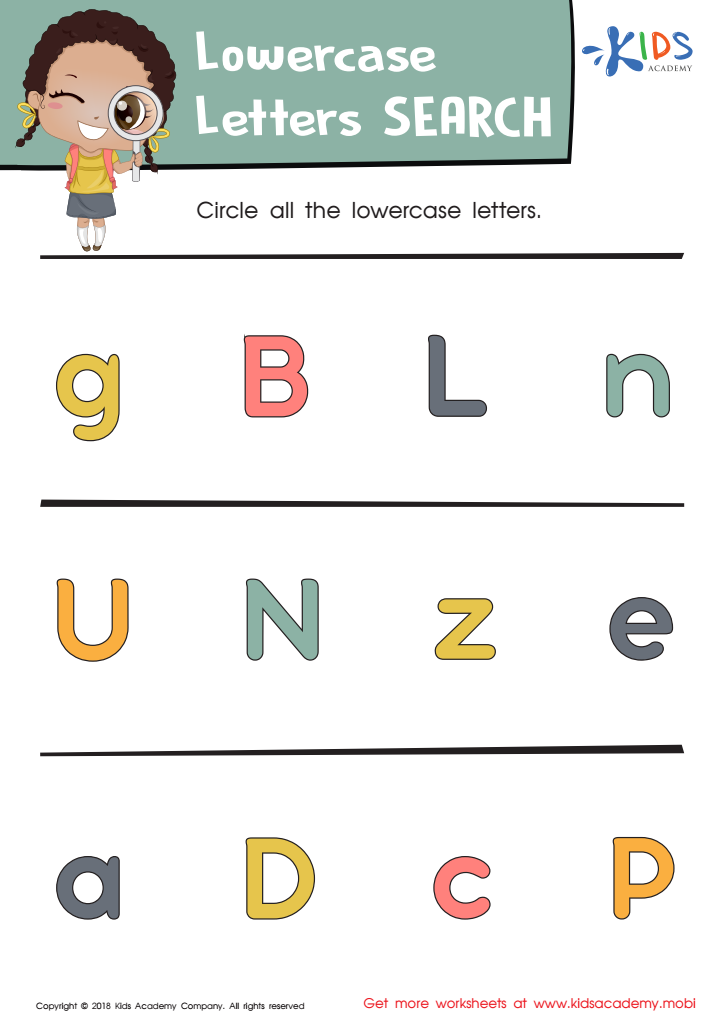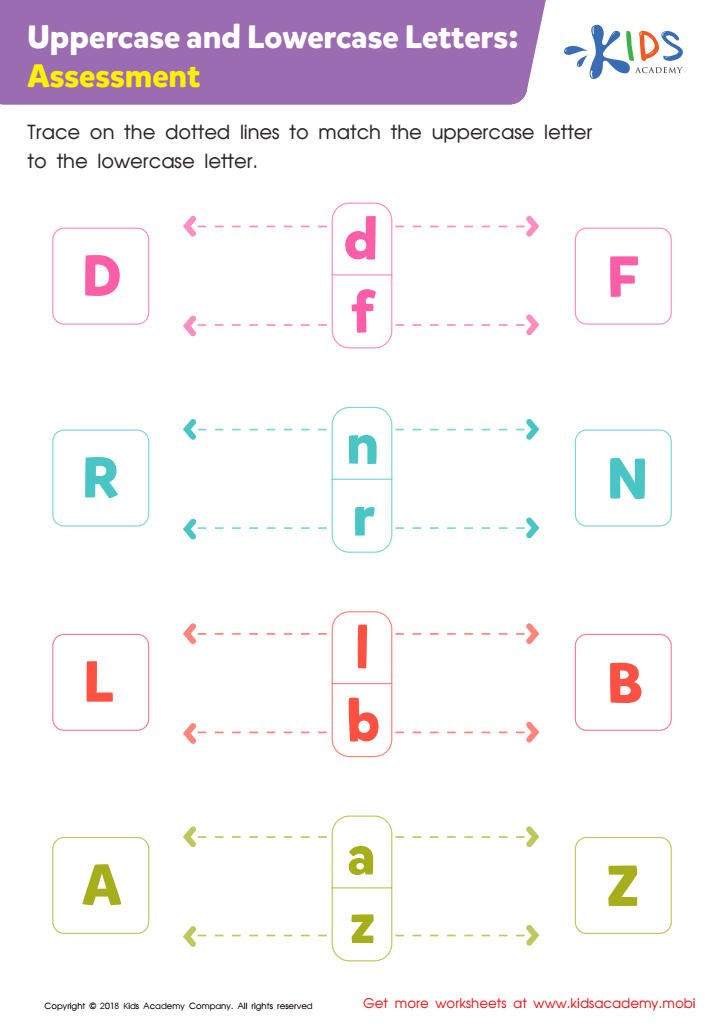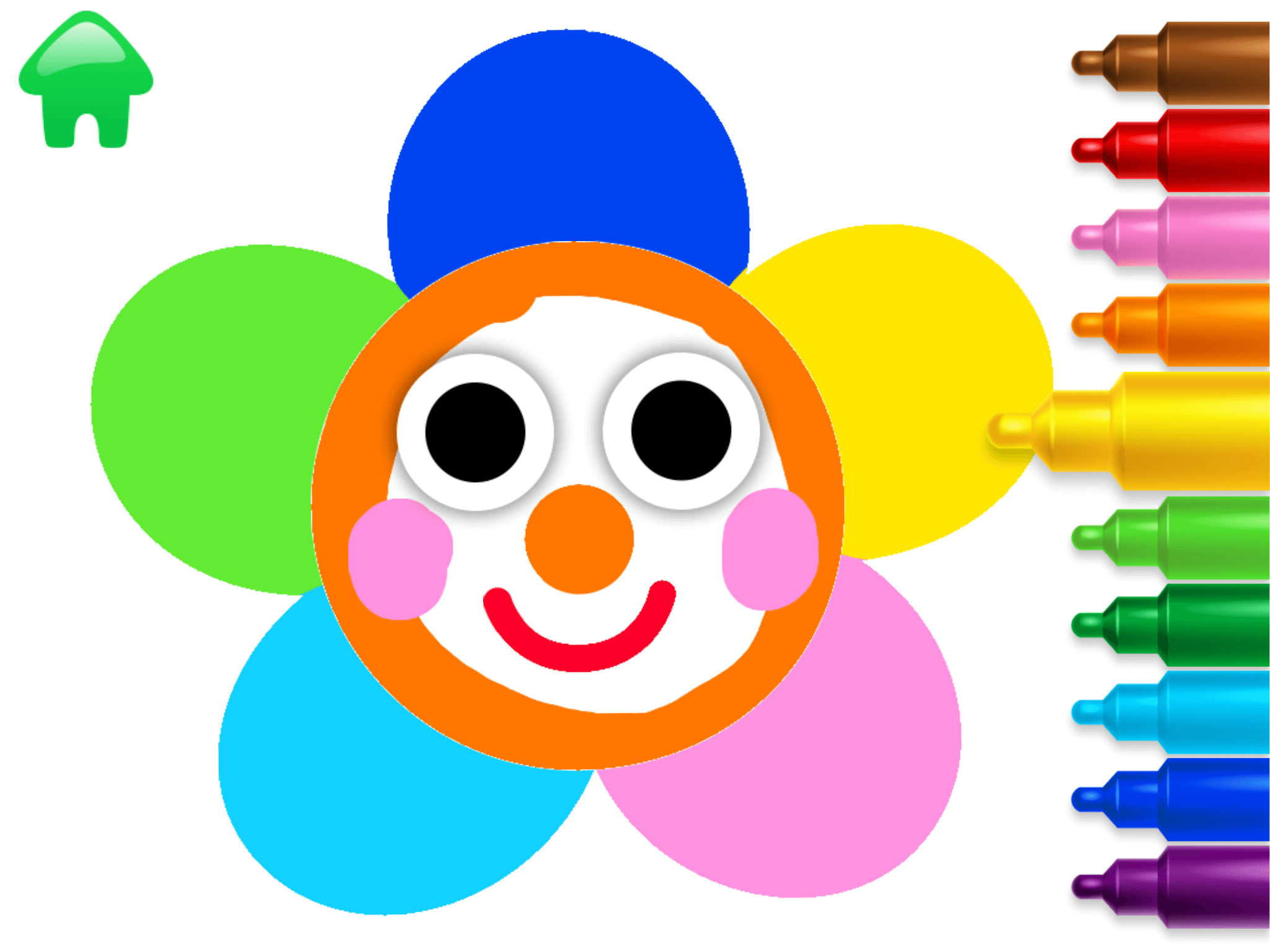Lowercase/Small Letters worksheets activities for 5-Year-Olds
2 filtered results
-
From - To


Lowercase Letters Search: Assessment Worksheet


Uppercase and Lowercase Letters: Assessment Worksheet
Lowercase/Small Letters worksheets activities are an invaluable tool in the toolkit of educators and parents alike, aimed at enhancing young learners' literacy skills. These activities are not only foundational in teaching the basics of reading and writing but also in fostering a love for learning from an early age. The significance of mastering lowercase letters cannot be overstated, as they significantly outnumber uppercase letters in text, making their recognition and correct formation crucial for literacy development.
The utility of Lowercase/Small Letters worksheets activities lies in their ability to provide a structured, engaging platform for children to practice and internalize these essential elements of the alphabet. Through a variety of exercises such as tracing, matching, and identifying letters, children develop fine motor skills and letter recognition, both of which are fundamental to reading fluency and handwriting proficiency. These worksheets often incorporate vibrant illustrations and themes, making the learning process enjoyable and stimulating for young minds.
Moreover, Lowercase/Small Letters worksheets activities serve to boost confidence. As children become more adept at identifying and forming these letters, their reading and writing abilities improve, fostering a sense of achievement and encouraging a positive attitude towards learning. This early success is pivotal, as it lays the groundwork for future academic endeavors, making the transition to more complex literacy tasks smoother and less daunting.
Additionally, these worksheets offer flexibility in learning, catering to individual paces and learning styles. Whether in a classroom setting, homeschooling environment, or as supplementary practice at home, Lowercase/Small Letters worksheets activities can be adapted to meet the diverse needs of young learners, ensuring that each child receives the right level of challenge and support.
In conclusion, Lowercase/Small Letters worksheets activities are not just about learning letters; they are about setting the stage for lifelong literacy, cognitive development, and a successful educational journey. The benefits of incorporating these activities into early learning curriculums are profound, highlighting their indispensability in fostering literate, confident, and eager learners.

 Assign to My Students
Assign to My Students
















